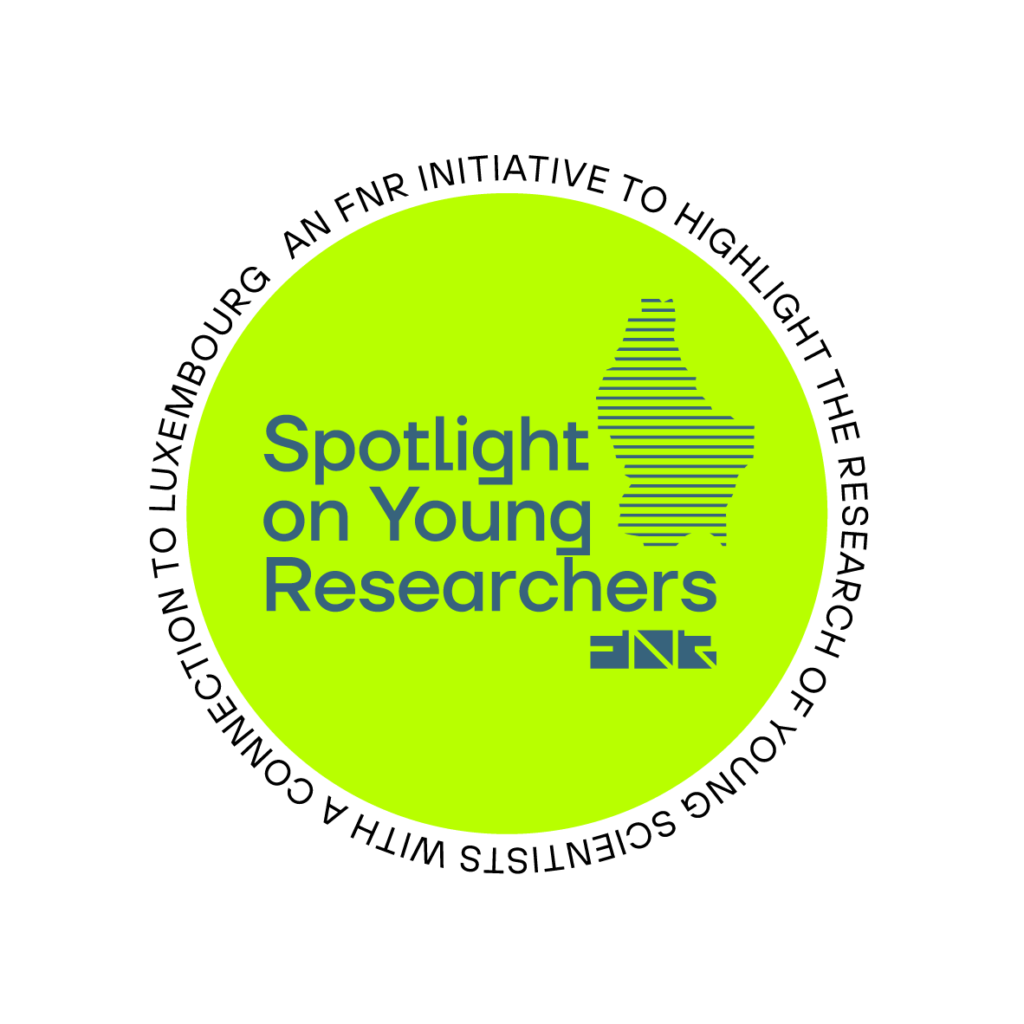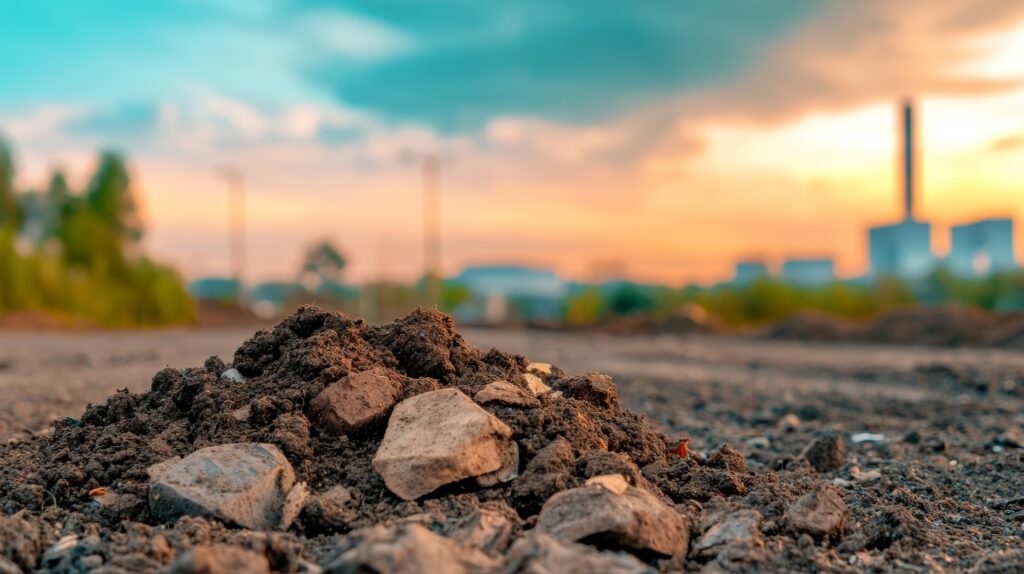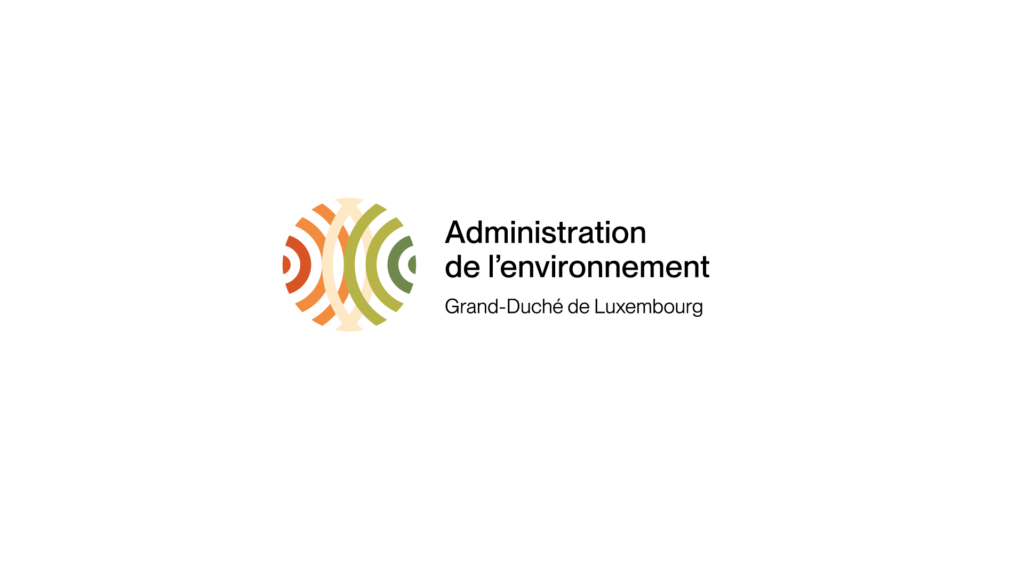BACK TO RESEARCH WITH IMPACT: FNR HIGHLIGHTS
Industry, agriculture and waste disposal all cause soil pollution, a threat to both ecosystems and human health. Environmental scientists and engineers are collaborating with regulatory bodies to develop policies promoting sustainable land use.

The European Environment Agency (EEA), estimates that, globally, over 500,000 premature deaths annually are due to polluted soil. The current estimate only considers only a subset of pollutants, indicating the actual damage to health is more severe. Children and the elderly are especially vulnerable to have adverse health effects because of prolonged exposure. In order to protect environmental integrity and public health, regulators must implement policies to combat soil contamination.

Sustainable land management aligned with societal goals
Scientists are working to develop sustainable land management that are aligned with societal goals. While progress has been made, there are still obstacles on the path to creating cost-effective, scalable, and eco-friendly approaches that address both immediate contamination as well as long-term environmental impacts.
Soil contamination is not simple. Each contaminated site has individual characteristics and needs a targeted remediation strategy, making a universal solution tricky.
“Integrating innovative technologies and interdisciplinary approaches is crucial for a sustainable future. The risk-assessment approach is the first step to define if a polluted site can cause damage to human health, the ecosystem and groundwater. If this is the case, the owner is responsible for remediating the site and the most sustainable and cos-effective solution should be applied. Nature-based solutions are a valid option for remediating polluted soils when the conditions of the sites allow it, and I've witnessed the impact of advancements in this field. With a background in environmental engineering and environmental sciences, I've contributed to initiatives utilizing natural processes like phytoremediation and bioremediation to restore contaminated soils. ”Anna Espinoza Environmental Scientist Luxembourg Institute of Science & Technology (LIST).
Close collaboration with Environmental Agency of Luxembourg
Anna currently scientifically supports the Environmental Agency of Luxembourg in shaping a regulatory framework for soil protection. The goal is to integrate scientific research with practical policy implementation to ensure the preservation of ecosystems and human health.
By focusing on sustainable contaminated land management practices and collaborating with regulatory bodies, Anna contributes to formulating policies promoting sustainable land use, which includes integrating sustainable remediation technologies, ensuring environmental protection and societal well-being.

“In my efforts to promote sustainable remediation technologies and contribute to the development of a new soil protection law, innovative concepts for the sustainable management of polluted sites are being explored. These efforts align with the recent proposal for a Directive on Soil Monitoring and Resilience from the European Commission. I am proud to have been selected as a speaker for the International Soil Day event in Luxembourg, co-organized by l’Administration de l’Environnement (AEV), the Luxembourg Institute of Science and Technology (LIST), and l’Administration des Services Techniques de l’Agriculture (ASTA). ”Anna Espinoza Environmental Scientist Luxembourg Institute of Science & Technology (LIST).
Anna Espinoza is an environmental scientist working as senior researcher at the Luxembourg Institute of Science & Technology (LIST). Anna has recently successfully secured two European projects focused on soil health and nature-based solutions for soil decontamination.
MORE ABOUT ANNA ESPINOZA
Describing her work in one sentence
“Advancing Sustainable Land Management: The Key Contribution of Sustainable Remediation Technologies.”
On her research, peer to peer
“My research is centered on integrating risk-based approaches into land management, with a particular emphasis on sustainable remediation technologies. While numerous remediation methods exist for restoring polluted land, certain approaches may come with significant drawbacks. Therefore, the careful selection of the most suitable site-specific technology is essential to ensure a sustainable recovery of the land. Promoting the utilization of nature-based solutions, wherever applicable, is crucial for fostering environmentally friendly remediation practices and facilitating the restoration of ecosystems in a manner that aligns with broader sustainability goals.”
About her passion for research
“Following a technical degree in environmental engineering, I discovered my passion for research, particularly in the restoration of degraded natural environments. This personal interest guided my career journey, leading me to seek positions aligned with my aspirations. Joining the Environmental Policies group at LIST marked a significant step towards my career goal of contributing to policy development for environmental protection.”
What she loves about science
“What I really love about science and research is its power to unite people globally in the quest for truth and knowledge. It’s incredible how it connects us all in the search for deeper understanding, aiming to make our world a better, more sustainable home. This sense of collective purpose and the drive to expand our horizons together truly inspires me to contribute positively to our planet.”
Where she sees herself in 5 years
“I see myself following my passion for research, as an established researcher in Luxembourg, which I consider my home, by helping out policymakers on our quest for zero pollution.”
Mentors with an impact
“During my master’s in environmental engineering, Dr. Guerrero first introduced me to research, marking a key step in my career. My skills were further refined thanks to Dr. Seeger and Dr. Franzetti, my PhD supervisors. Their guidance was instrumental in shaping my path and capabilities as a researcher.”
Related highlights
Spotlight on Young Researchers: Advancing ecosystem monitoring with remote sensing and innovative models
The health of terrestrial ecosystems is intricately linked to the sustainability and stability of society: forests, grasslands, and cropland, play…
Read more
Spotlight on Young Researchers: Unravelling the role of calcium signalling to overcome melanoma drug resistance
Cutaneous melanoma is the most serious type of skin cancer and the sixth most frequent cancer in Europe. Despite progress…
Read more
Spotlight on Young Researchers: Toward greener AI
Deep learning has seen an explosive growth and as it is now being relied upon in areas such as healthcare,…
Read more
Spotlight on Young Researchers: Combining machine learning & life events data to predict depression
A high number of people experience experiences depression in older age. Factors such as childhood conditions, adult life trajectories, and…
Read more
Spotlight on Young Researchers: Probiotics to the rescue
Billions of living microorganisms live in the human gut microbiome. Research has shown that an imbalanced microbiome plays a role…
Read more
Spotlight on Young Researchers: How multilingualism impacts learning numbers and mathematics
In an increasingly multicultural and multilingual society – especially in Luxembourg – it is key to ensure an educational system…
Read more